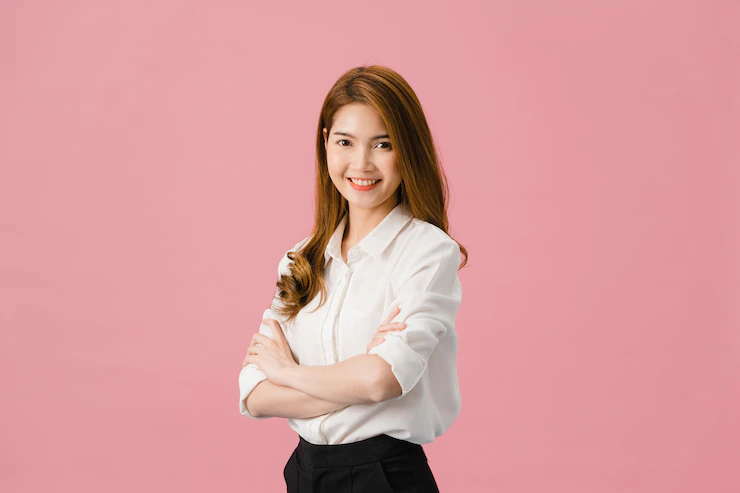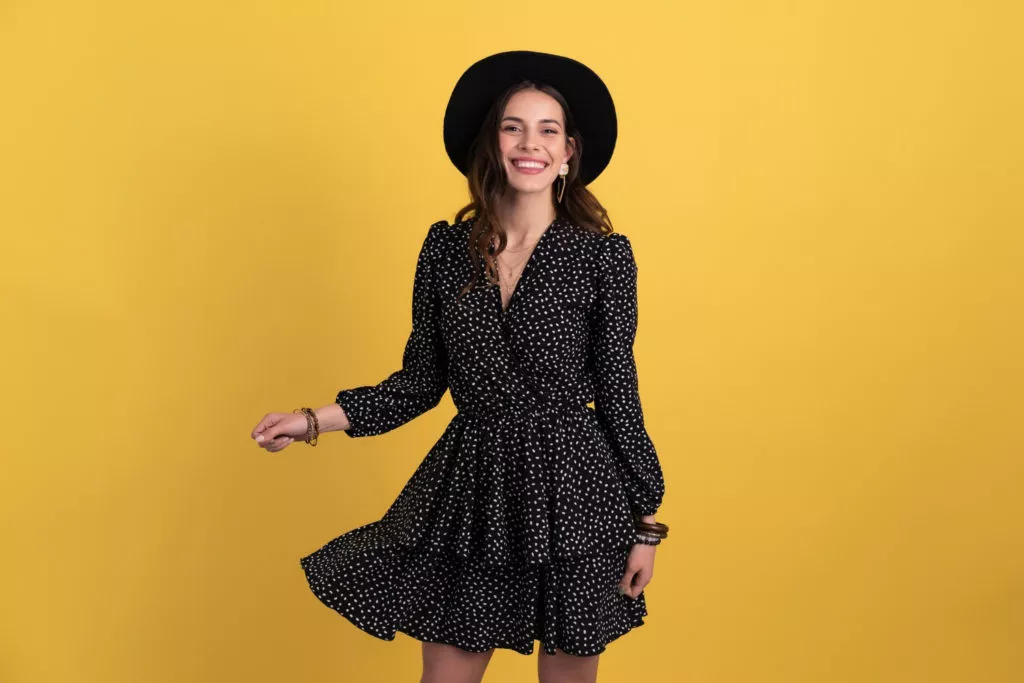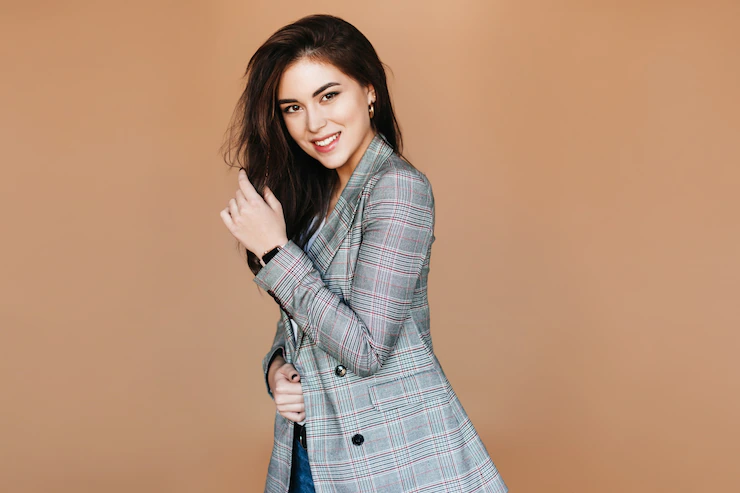Part of landing your dream role is going through job interviews. How you dress on the day of your interview is as important as your resume. You want to appear confident and professional, so better dress for success.
The buildup to your interview is nerve-wracking because you want to make a good impression. Feeling nervous is normal; even versed job seekers get cold feet. But what sets experienced workers apart from rookies is their professionalism during their job interviews.
No matter the industry you landed an interview with, looking professionally qualified is essential. But how can you come up with a polished appearance without looking dull?
Here are some tips for curating the best job interview attire while adding a personal touch.

What to wear to a job interview [female]
Your clothes affect your hiring chances. It shows your potential employers that you understand the company culture. Most companies want their candidates to look cohesive with existing employees.
A wardrobe full of clothes doesn't always help find the best outfit. But know that there are some interview-appropriate colors that you can wear—neutral colors like navy blue, grey, black, and brown. Then you can use shades of light, pastel blouses, and don't be afraid to add hints of texture too.
Various industries and job positions call for different dress codes. For instance, startups are more casual than corporate companies, so dressing for this interview can mean wearing a knit sweater and pants. Then pair it with a blazer and ankle boots.
Here are more examples of business casual and formal wear.
Business casual
Think of an interview as a place for you to show your personality. For a job interview that requires you to wear business casual, you can sport a statement dress with a bold print. But never wear clothing that's too short and too revealing.
You may also experiment with materials like silk blouses to match with a pencil skirt. Finally, complete the outfit with a thin waist belt and a jacket to elevate the look.
Use a cardigan with subtle yet interesting details depending on the nature of your interview. But avoid anything too flashy and striking like animal prints.
Business formal
Wear traditional elements like black blazers and dress pants for a formal setting. Then you can spice it up by incorporating a colored blouse. Use a thin breathable material under your blazer if you're particular with comfort. But be sure it's not see-through.
You can always wear a classic black dress when all else fails. A simple black dress is something every professional woman should have in their wardrobe. Finish this look with a personal twist by pairing it with tights and pointed shoes.
1. Plan your outfit
The thought of professionals questioning you about your capabilities is gut-wrenching. However, planning your outfit can ease the tension. It takes your mind off pre-job interview stress.
Researching the company dress code is part of planning your outfit. It shows that you go above and beyond to be a part of the team.
Consider wearing a suit with slacks that goes all the way to your ankles for traditional workplaces. Next, match it with black 3-inch heels depending on your preference because flats are also acceptable.
Clothes affect your confidence. The theory of dopamine dressing involves wearing clothes intended to boost your mood. Colors can change your psyche, while textures can make you feel uplifted. So what you wear during an interview can impact fresh ideas and make you feel powerful.
2. Go for a modest hemline
Clothes are one of the deciding factors between two competing candidates. What you wear and how you present yourself is a test of judgment skills. Even if your resume looks credible, your looks can change the recruiter's decision.
For example, showing up to a startup interview in formal business attire may be translated differently by employers. It may signify that you're overqualified for the position. Likewise, dressing up too casually for a corporate interview may suggest that you don't care about company policies. Thus, read the situation carefully and don't hesitate to contact the hiring team for advice.
Be mindful of what to wear to your job interview. An experienced applicant will wear a midi dress or skirt with a modest hemline. Midi refers to clothes that reach from 2-inches below the knees to the calves area. You may couple this ensemble with a button-down shirt and polished dress shoes.
3. Stand out with a statement dress
Your outfit is a vital element of what you bring to a job interview because it shows seriousness about the role. Even if you don't think people should judge you based on your appearance, dressing appropriately indicates respect.
Instead of conforming to the customary job interview outfits, embrace a statement dress. A shift dress, for example, can make you feel relaxed while looking professionally well-dressed. This type of dress is extremely versatile and appropriate for any occasion.

4. Pair a professional top with dress pants
Your appearance is part of the nonverbal cues that can make or break your job interview. Recruiters will reject candidates who aren't dressed for the role. However, you can establish trustworthiness by looking neat and tidy.
If you have dress pants, pair them with a simple blouse, a navy blue blazer, or something similar. Avoid too much jewelry when accessorizing for an interview. Instead, choose simple stud earrings like pearls to have an elegant feel.
Personal grooming also plays a significant role during your job interview. Even if you have the best interview outfit, hiring managers can spot it if you lack good personal hygiene. So be sure you get a good night's sleep and bathe before you set off.
5. Wear comfortable shoes
Shoes make a bold statement. An employer can tell a lot about a candidate through their shoes. So rather than wearing your usual everyday office wear, go slightly overdressed.
You want to put your best foot forward during your job interview. Consider using well-polished flats if you find heels too painful. However, rounded flats may look too casual. So opt for pointed-toe flats because it provides classy and sophisticated aesthetics.
Always wear comfortable shoes. If your interview goes well, the hiring manager will often tour you around the office. Also, note that people are working, so avoid shoes that click clack on the floor too loud; employers may find it distracting.
For an additional tip, never wear open-toed or strappy shoes to a job interview. Depending on your chosen position and industry, these shoes violate the company's dress code.
6. Bring a dark-colored blazer
Employers are highly picky regarding job qualifications. Understandably, discrimination against potential employees is illegal. Having tattoos may pose a threat to your hiring chances. Even though some applicants have what it takes to become an employee, 43% of recruiters will deny candidates with visible tattoos.
Thus, if you have visible tattoos, cover them up with a blazer, long sleeve polo shirt, or a sweater to prevent these circumstances from happening to you.
Choose blazers with a darker tone. Then try pairing it with pressed slacks or a skirt. Sporting a dress with a coat is also interview-appropriate as long as your clothes are a snug fit. Wearing too tight or loose apparel will not impress the company.

7. Choose neutral colors
Corporate companies have a strict dress code for a reason. They want their appearance to reflect the company's mission and vision.
Settle for clothes with neutral colors if you want to establish rapport with your potential employers.
The color of your garment conveys an unspoken language. Navy color suggests power and authority. So wearing navy demonstrates your willingness and accountability.
Additionally, wear a black coat if you want to have a cutting-edge fashion statement or want to intimidate other applicants. Brown or earth tones, on the other hand, show that you're approachable, while grey indicates good work ethics.
8. Avoid revealing clothes
Dressing appropriately for a job interview promotes self-respect. It shows that you value the company and the seriousness of your role.
Avoid anything that shows too much skin. If a candidate attends an interview in an ill-suited fashion, it indicates that she will continue to make poor job decisions. So choosing an outfit tailored to your body demonstrates that you're eager to oblige with company policies.
9. Avoid casual clothes
All interviews are formal occasions. While there is no concrete rule to looking professional, a good tip is to dress like you already belong in the company. You want your employers to think you're ready to take on your job on the day of your interview.
In all your job interviews, you must ensure that your clothes are clean, freshly ironed with neatly polished shoes. Wearing casual clothes is not an interview-acceptable attire. Items like sandals, tank tops, and denim pants are too informal and easygoing, except if you're applying at a surf shop.
Hiring managers inspect the slightest detail of your impression. So better elevate your casual wear to something more business-like. For example, go for muted floral A-line blouse with a skirt or dress pants to make your outfit look formal.
Knowing when to dress a certain way shows that you have self-awareness. It displays that you acknowledge company norms.
10. Avoid "loud" accessories
Naturally, you want the freedom to accessorize to show your personality. But too many accessories can jeopardize your chances of landing the job.
Jewelry makes a great addition to your attire, depending on the work environment. Keep your accessories to a bare minimum for your interview. Choose a statement piece like diamond earrings, small dainty hoops, and delicate pendants with a thin chain necklace. Altogether you want to avoid anything excessive.
If your staple accessory is something political or religious, you may want to leave it behind for your interview. Even if your personal views shouldn't matter during a job interview, unconscious bias is inevitable.
11. Avoid heavy perfume and makeup
For some women, perfume and makeup is part of their daily routine. It can make them feel confident. However, people who wear scents often don't grasp how potent the smell can be. So how much perfume and makeup is too much for a job interview?
Kevin Hardy, a perfumer from heyscent.com recommends choosing a perfume with a mild scent. Some people may have scent sensitivity and may be allergic to strong colognes. In most cases, interviewers cut interviews short due to the unbearable odor. So if you like fragrances, opt for 1-spritz on both wrists, then rub it at the sides of your neck.
Wearing makeup for a job interview is ok, granted that it's natural and subtle. Use shades that resemble your skin tone so you can still make a good impression without caking your face.
12. Check if the company has a dress code
If you're unsure what to wear for a job interview, you can always ask the interviewer about the dress policies. It shows your enthusiasm for the job and respect for company regulations.
You can call and say, "Hello, I'm coming for an interview tomorrow. May I know what employees in X department typically wear?" However, if you're still unsure, go with a business formal attire. Being overdressed is usually less harmful than being too underdressed.
12. Check if the company has a dress code
If you're unsure what to wear for a job interview, you can always ask the interviewer about the dress policies. It shows your enthusiasm for the job and respect for company regulations.
You can call and say, "Hello, I'm coming for an interview tomorrow. May I know what employees in X department typically wear?" However, if you're still unsure, go with a business formal attire. Being overdressed is usually less harmful than being too underdressed.
Conclusion
To sum it up, receiving an email from your employer saying that you landed an interview is scary and exciting. You've come a long way to impress the hiring manager through your application letter and resume.
The final step in career development is to pass your job interview. So to impress your employers, you must dress accordingly. Dressing well shows that you pay attention to details, proving to the company that you fit in with everyone.

